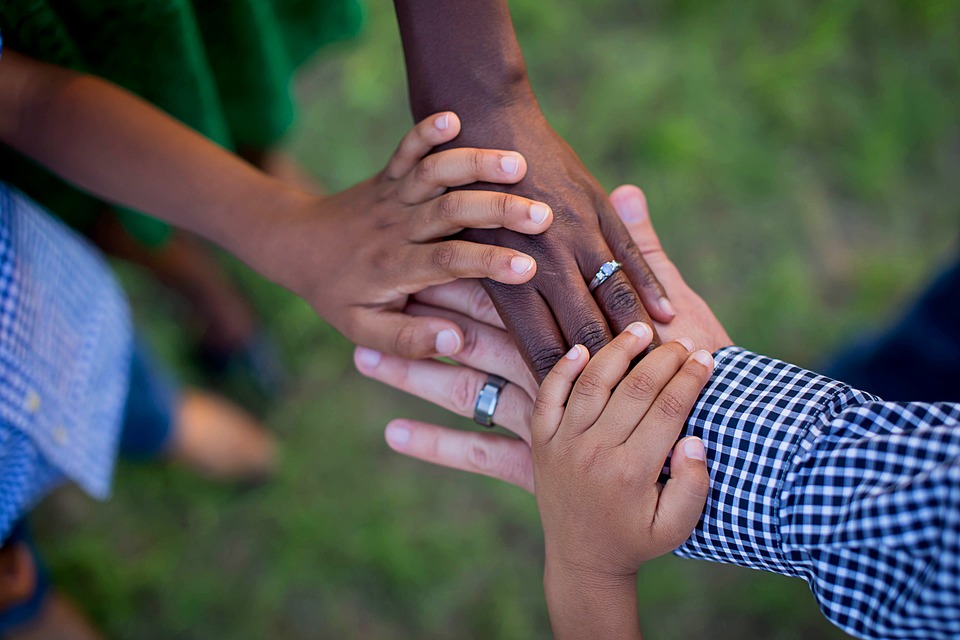Holidays: Two Homes, One Childhood
 Holidays for split families can be melancholy and stressful, but there are ways to make them brighter. Robert Emery, author of Two Homes, One Childhood: A Parenting Plan to Last a Lifetime (2016), offers ten tips for giving your children a holiday of meaningful family time. Mr. Emery is a professor of psychology in the College and Graduate School of Arts and Sciences and Director, Center for Children, Families and the Law at the University of Virginia.
Holidays for split families can be melancholy and stressful, but there are ways to make them brighter. Robert Emery, author of Two Homes, One Childhood: A Parenting Plan to Last a Lifetime (2016), offers ten tips for giving your children a holiday of meaningful family time. Mr. Emery is a professor of psychology in the College and Graduate School of Arts and Sciences and Director, Center for Children, Families and the Law at the University of Virginia.
Lifetime Learning welcomes your comments about families and the holiday season.
Happy Holidays!
The season is upon us, but you may not be feeling so chipper if you are divorced or otherwise living apart from your children’s other parent. The holidays are supposed to be happy, family times, but you may not be feeling very happy, or much like a family. Maybe you split up recently and feel very much alone in your grief. Maybe this is the year your children aren’t scheduled to be with you much. Or maybe you have your kids for the holidays, but you long for past family traditions – and have no idea how to celebrate on your own. Maybe you and your ex are still fighting about who gets the children when.
Happy Holidays? Yeah, right.
 For nearly four decades, I have studied and worked with parents who are breaking or broken up and whose children are living in two homes. I also have been there myself, as I shared in my first how-to-get-through-divorce book for parents, The Truth About Children and Divorce, and again in my recent book on how-to-share custody of children of different ages, Two Homes, One Childhood. (My ex and I both live in the same Charlottesville neighborhood as our adult daughter and her family, and we proudly share “custody” of three grandchildren.)
For nearly four decades, I have studied and worked with parents who are breaking or broken up and whose children are living in two homes. I also have been there myself, as I shared in my first how-to-get-through-divorce book for parents, The Truth About Children and Divorce, and again in my recent book on how-to-share custody of children of different ages, Two Homes, One Childhood. (My ex and I both live in the same Charlottesville neighborhood as our adult daughter and her family, and we proudly share “custody” of three grandchildren.)
So, I have been there personally in addition to working with hundreds of families as a psychological scientist, therapist, and mediator. I understand that you may be looking forward to January 2 more than any of the dates between now and then. But even if you’re feeling like the Grinch, you can get through this – and still make the holidays special for your kids. Here are my ten tips for making that happen:
1. Remember the holidays are not all about you. Your children deserve their celebrations even if you feel cheated out of yours. Encourage them to have a blast with their other parent, even if you can’t stand the prospect of being alone.
2. Get into the spirit of the season. This is a time of giving, forgiving, and fresh starts. Turn Scrooge’s emotional lessons about holidays past, present, and yet to come into New Year’s resolutions about letting go of anger and treasuring all you have – despite all you have lost.
3. Another lesson from Scrooge: Love means far more than money. Your time, attention, and emotional presence are much more important to your children than lavish gifts. You may be short on money but you can be long on love.
4. The holidays are not a competition with your ex or for your children. Teach your children the true meaning of the holidays, not the meaninglessness of materialism.
5. Communicate and coordinate with your children’s other parent. A brief text, email, or conversation can insure that you don’t duplicate presents or plan back-to-back feasts for stuffed and confused children. Ten minutes now can save days (or weeks) of fuming later.
6. Do the details. Work out exactly where your children will be during what times, and when, where, and how exchanges will take place. Your children will feel more secure, and all of you will avoid frustration and disappointment.
 7. Consider celebrating part of the holidays together with your children’s other parent, especially if your separation is fairly recent. Some people are shocked when divorced families celebrate holidays together. Go ahead and shock them!
7. Consider celebrating part of the holidays together with your children’s other parent, especially if your separation is fairly recent. Some people are shocked when divorced families celebrate holidays together. Go ahead and shock them!
8. If you went through the agony of 11th hour negotiations this year, set up a plan for next year now. Everyone will be happier knowing what is coming, and avoiding conflict on the eve of the holidays.
9. Work things out in advance with your own extended family too, whether that means that you say “no” to invitations, spend the holidays a little differently than usual, or ask for your family’s understanding and help.
10. Establish traditions with your children, even new ones that may be off time or different from past rituals. Your kids may not remember the details of 2018, but year-in, year-out rituals will stay with them for a lifetime.
You may have to fake it some to get through the holidays. If so, that’s OK. You’re putting on an act for your kids’ sake. Come January 2, I hope you will find that your extra effort was worth it, because kids had happy holidays, even if you did not.
- Having a Drink With Your Donkey: The Absurd in Antiquity
- What Happens to UVA’s Recycling? A Behind the Scenes Look at Recycling, Composting, and Reuse on Grounds
- Finding Your Center: Using Values Clarification to Navigate Stress
- UVA Club of Atlanta: Virtual Pilates Class
- UVA Club of Fairfield/Westchester: Cavs Care - Food Pantry Donation Drive
- UVA Club of the Palm Beaches: Hoo-liday Cruise
